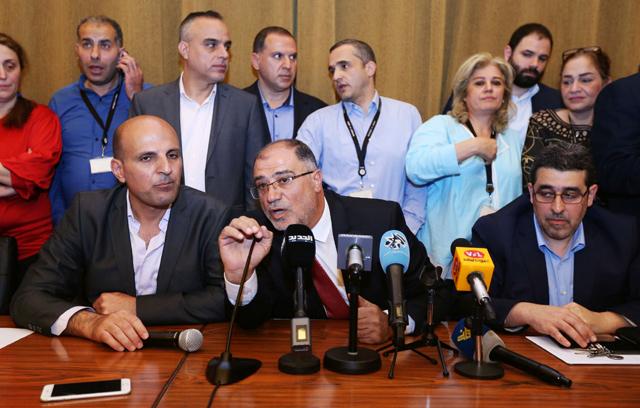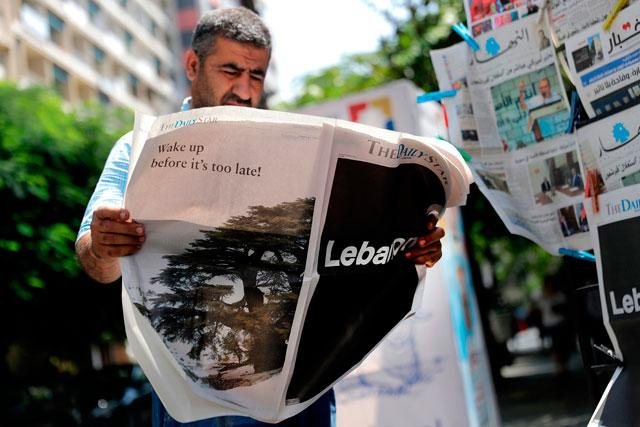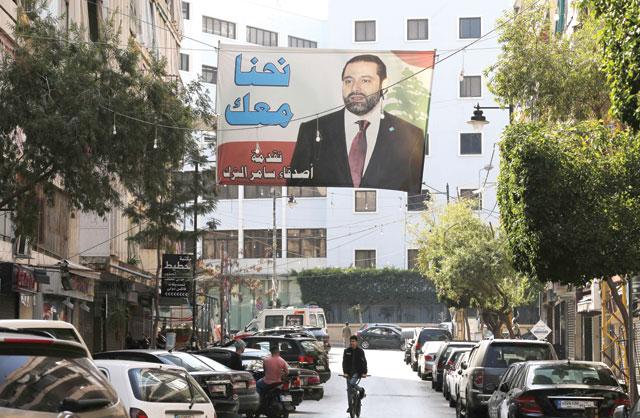You are here
Lebanon central bank employees suspend strike
By AFP - May 07,2019 - Last updated at May 07,2019

Abbas Awada, head of the central bank workers' syndicate, talks during a news conference at the central bank in Beirut, Lebanon, on Tuesday (Reuters photo)
BEIRUT — Employees of Lebanon's central bank on Tuesday said they were suspending a strike that has crippled the country's stock exchange and alarmed officials.
Central bank employees launched the strike on Saturday to protest feared cuts to their benefits as part of a new austerity package being studied by the Cabinet ahead of this year's budget.
On Monday, the Beirut Stock Exchange said it had been forced to halt trading "until further notice" as it could not clear and settle trades because of the strike.
On Tuesday, Abbas Awada, the head of the syndicate of central bank employees, said they were suspending the strike for three days.
The decision stemmed from "a sense of responsibility towards society and the Lebanese economy", he said, while noting that the suspension could be lifted.
"The assembly will convene next Friday morning to... decide on whether to continue the open-ended strike or to cancel it," he said, quoted by the state-run NNA news agency.
The suspension came one day after the central bank’s governor, Riad Salame, demanded an end to the strike due to its impact on the economy and financial transactions, according to a statement from the syndicate.
On Tuesday, central bank employees received assurances from Salame that their wages and benefits would not be affected by austerity measures, Awada said.
Lebanon has vowed to slash public spending to unlock $11 billion worth of aid pledged by international donors at an April 2018 conference in Paris.
Last month, Prime Minister Saad Hariri vowed to introduce "the most austere budget in Lebanon's history" to combat the country's bulging fiscal deficit, sparking fears among public sector employees that their salaries may be cut.
In recent days, protests have also handicapped Beirut Port and the National Social Security Fund.
On Monday evening, President Michel Aoun convened a meeting with Hariri and parliament speaker Nabih Berri.
"Everybody knows there's an economic crisis," Hariri said after the meeting, according to a statement from the presidency.
"It has to be managed through austerity and reforms, without targeting one side over another."
Information Minister Jamal Jarrah said reports of wage cuts for public sector employees stemmed from "leaks" and "rumours".
"The leaked information", he said, is "incomplete, and misleads public opinion".
Lebanon is one of the world's most indebted countries, with public debt estimated at 141 per cent of gross domestic product in 2018, according to credit ratings agency Moody's.
Related Articles
BEIRUT — Petrol station owners in Lebanon on Friday suspended a strike and said they reached a deal with the government allowing them to pay
BEIRUT — Publications disappearing from newsstands, radio and TV channels struggling to stay on air: Lebanon's once-flourishing media i
BEIRUT — Lebanon's president will not accept the resignation of prime minister, Saad Al Hariri, until he returns to Lebanon, palace sources













